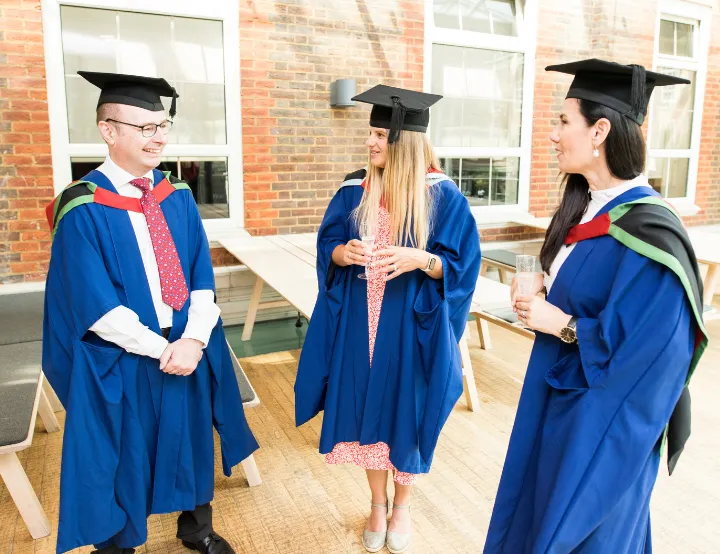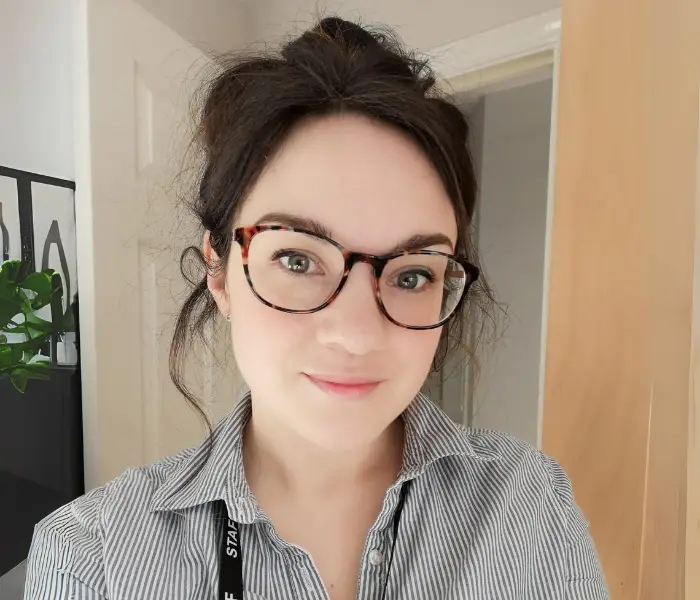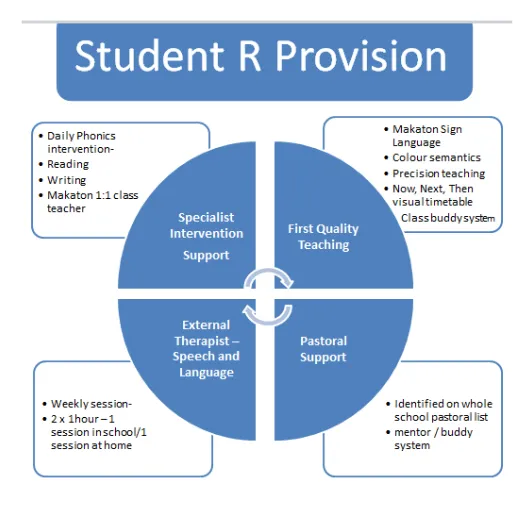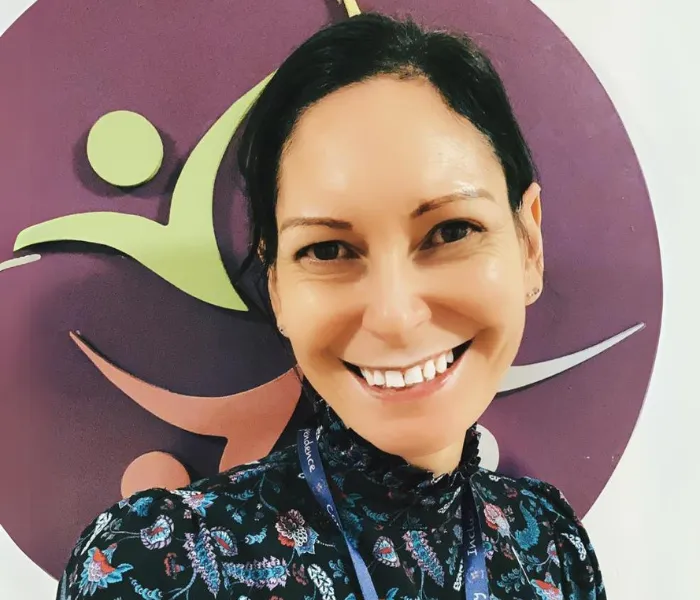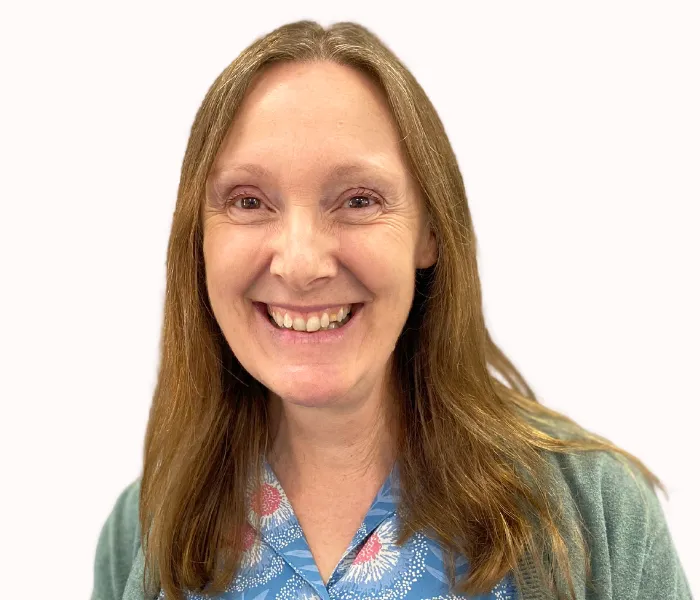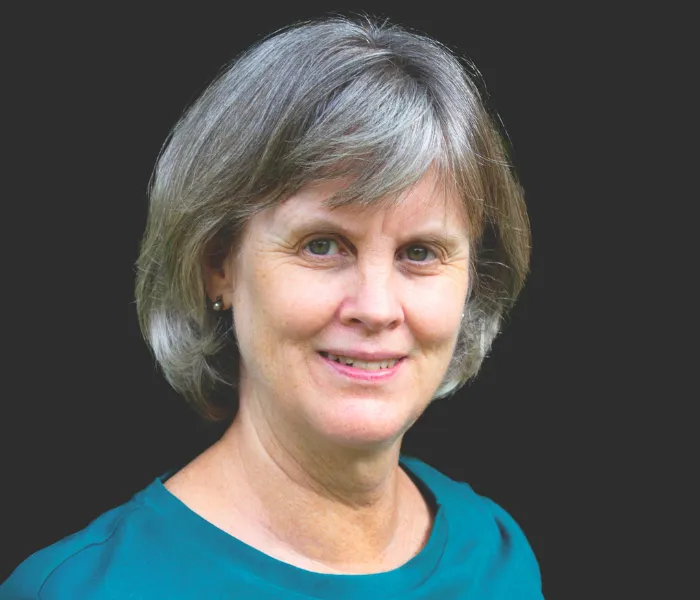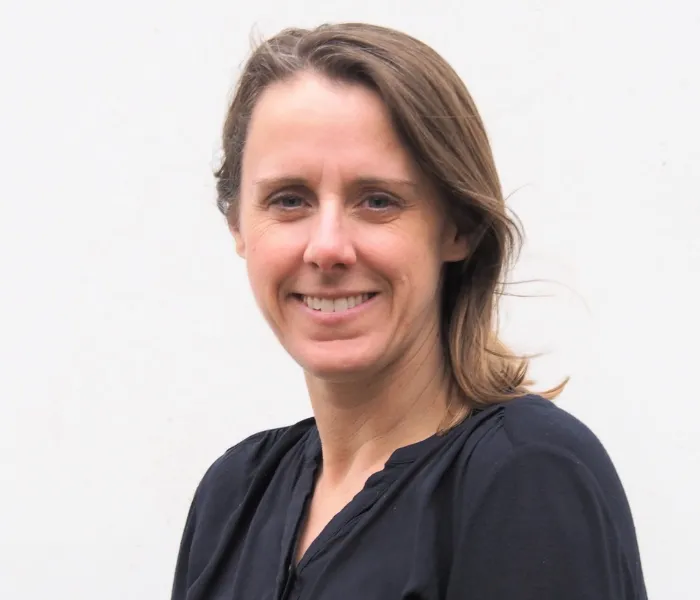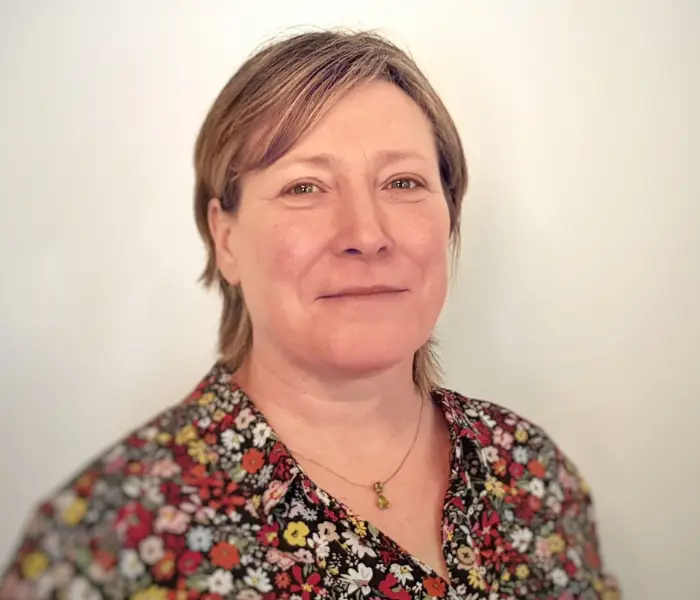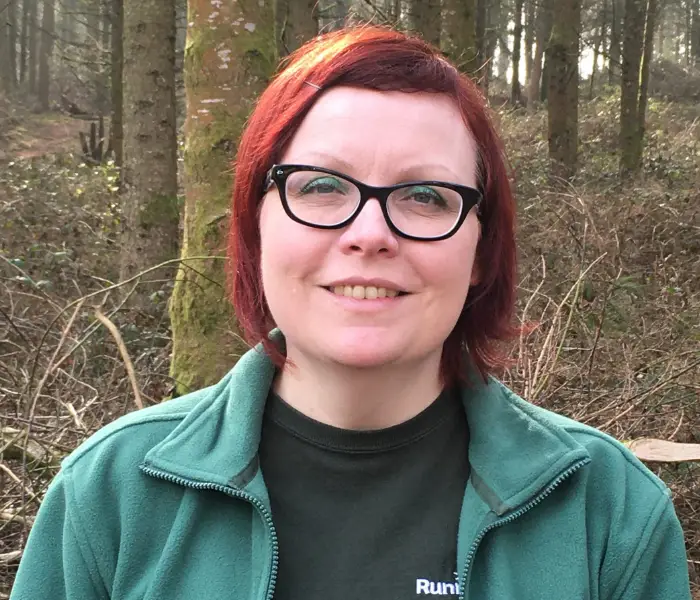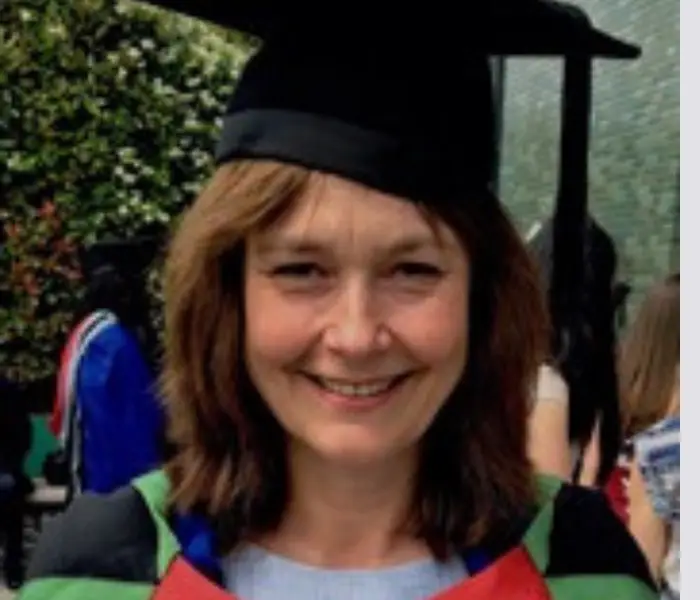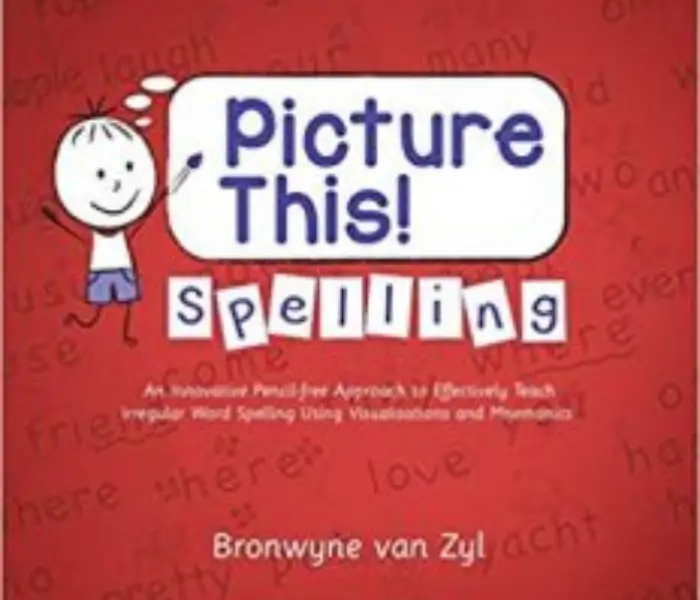With our practice-led learning approach, our delegates have plenty of opportunities to put what they have learned into action and see tangible results in their educational settings.
Some of our modules, such as the Enquiry-based SEND practice module, taken to complete the Masters of Education in SEND and Inclusion (MEd SEND and Inclusion), specifically require delegates to undertake a piece of enquiry-based professional action research, which will help you to examine your own practice and that of others.
Below is a selection of some of the best projects created by our delegates. This work isn’t just of a very high academic standard; it really goes on to make a measurable difference in the classroom and the lives of students.
View NASENCO projects
View iSENCO projects
Shantha Appavoo – NASENCO
Delegate Name: Shantha Appavoo
Course: National Award for SEN Coordination (NASENCO)
Qualification Achieved: Postgraduate Certificate SEND: National Award for SEN Coordination
Project Title: Implementing remote learning to support SEND students during the second partial school closure.
Read more about Shantha’s project
About Shantha:
Shantha has been a secondary school teacher since 1993. During that time she has undertaken a range of roles such as subject lead, has been a head of year, head of house and safeguarding lead. Shantha has also completed a Masters in Teaching and Learning at King’s College, London. She trained to become a SENCO in 2020. Currently, Shantha is working in a school in Westminster with a large and well-developed SEND provision that includes an externally funded language centre for children with significant communication and interaction needs.
Masters Assignment 3: Shantha chose to focus her assignment on support for SEND students engaging in remote learning during the second partial school closure based on the following rationale:
“Recent research during the first partial school closure in June 2020 indicated that it was likely that previous progress made to close the gap between those students benefiting from an advantaged home life compared to the disadvantaged was likely to be reversed. The research also indicated that a means of lessening the impact of partial closure was effectively supporting students in coping with online learning. In addition, it was recognised that on-going efforts would be essential to continue to close the gap for disadvantaged students that had widened during the current pandemic (Education Endowment Foundation 2020).”
Shantha explains that during Term 1 the SEND priorities consisted of:
- Embedding the graduated approach to establish a consistent level of Quality First Teaching
- Improving SEND assessment strategies
- Implementing reading strategies across the curriculum
- Enabling SEND students to catch up on their gaps in knowledge as a result of the first partial closure
Shantha highlights the barriers to learning for SEND students. Identifying digital access issues relating to both internet devices, the effects of poverty and issues relating to social, mental and emotional health. When implementing the SEND provision for remote learning, particular attention was directed to students with EHCPs. Shantha explains a recent study found that reading was specifically impacted by the Covid-19 gap (Rose et al. 2021). Therefore, it was crucial to invest in an online reading programme during the second partial school closure. In addition to this, a further intervention to support SEND students during the closure was in enabling students to access curriculum tasks, uploaded on Teams.
When assessing the impact of the Recovery Curriculum, SEND student voice indicated that daily contact with staff, short, scaffolded and varied tasks made engagement manageable. During the second partial closure, student voice was regularly assessed via Microsoft Forms, one-to-one conversations and Teams Chat. 82% of SEND students surveyed indicated that support had led to improved engagement and greater access to tasks.
What Next? Shantha concludes that the activation of the role of the Special Education Teacher (SET), training to ensure that staff understood how to support SEND students with blended learning, collaboration with external professionals and working to engage parents and their children has led to improved outcomes in this second partial school closure.
Feedback from relevant stakeholders was also positive. Measured via improved on-site attendance and significantly increased engagement with online access. Student/teacher conversations demonstrate that the SEND cohorts are more open when expressing difficulties and seeking appropriate support. Improved lines of communication and explicit instruction for staff, students and parents has created a healthy dynamic that will be developed as children return to full school opening.
Denise Watson – NASENCO
Delegate Name: Denise Watson
Course: The National Award for SEN Coordination (NASENCO)
Qualification Achieved: Postgraduate Certificate SEND: National Award for SEN Coordination
Project Title: How SENCOs can respond to the needs of vulnerable pupils during a period of remote learning
Read more about Denise’s project
About Denise:
Denise currently works as a SEND teacher in the secondary department of an international curriculum school in Dubai. However, Denise was actually primary trained and previously taught in primary settings in the UK and Qatar. Since working in a social and communication school in the UK, Denise says she has always had a keen interest in supporting and working with students with SEND. Despite an opportunity arising for a SEND teacher within the primary years of her current setting, Denise went for the opening within secondary provision as she “felt it was too good an opportunity to turn down when offered!”.
Denise explained that the responsibilities of teachers in the UAE are changing rapidly due to the country being on a quest for educational excellence. Explaining that it is now an expectation for SEND staff to hold a qualification, Denise felt this was the right time to embark on the NASENCO course as a route to gaining a masters in SEND. The online and distance learning approach of the course appealed greatly to Denise. Mainly due to her location and full time position.
Masters Assignment 3: Focusing on the effect the Covid-19 pandemic has had on the education system Denise set the context for her assignment by discussing research around online/distance learning, school responses, implementation and adaptation, tracking, monitoring and identification of need, communication and parental involvement.
Online/Distance Learning
Online learning is typically used in higher education (e.g. universities) and you would be unlikely to find this method within primary or secondary schools. She goes on to explain that this means there is little research regarding the impact of online learning or how it differs from classroom instruction. Further highlighting that of the research available, there is little explanation of the effects on children with SEND. Despite evidence showing online learners tend to make less progress than their counterparts, it was agreed that online learning was better than nothing at all.
School Response
It was announced that schools would close for two weeks of distance learning due to the rapid increase of COVID-19 cases; staff received notification the day before school closure. Work packs were sent to the homes of students for them to complete, with the belief that it would only be for two weeks. When trying to navigate safeguarding concerns for students online, the school decided to utilise the online platform Managebac, a system used to post timetables, homework, school notices/events and submit work. It soon became apparent that this platform was not user friendly, particularly for those students with SEND. A move to MS Teams meant learning new systems, resulting in a loss of lesson times. It became evident that an assumed strong understanding of ICT was not the case.
Implementation and Adaptation
All institutions were then instructed to offer full-time distance learning for all students, including those with SEND. The guidance outlined supporting the need of SEND students using a systematic process of ongoing review and improvement. After distance learning was extended, a plan of how to continue interventions for SEND students was a must. Gathering feedback from students and parents showed that the use of familiar activities online such as; reading comprehension, mental maths and spelling programmes was welcome. Some subject teachers moved their classes to online and it worked; however, as time progressed and engagement dropped it was clear there was room for improvement.
Tracking, Monitoring and Identification of Need
Live Excel tables were used to track and monitor daily attendance, lesson attendance (for live lessons), engagement and submission of work. With colour codes to identify students on the inclusion register and those already receiving additional support. Data was completed and analysed weekly by management and the Head of Inclusion, then used during communications with families. After discussions, subject teachers and grade-level leaders were the first to get in touch. If no positive effect was seen, students would be referred to the inclusion team.
Communication
The school used a variety of communication methods such as whole school notifications from the principal, social media updates from Instagram and Facebook accounts, weekly emails from Grade Level Leaders about curriculum/learning, individual emails regarding non-engagement from teachers, parent-teacher conferences via MS Teams, pastoral calls and video calls to those with additional needs. In the haste to keep parents informed, Denise felt they may have done too much and appreciates that streamlined concise communication is the key.
Parental Involvement
Parental involvement in Denise’s setting varies from family to family. With lots of the community having home help through nannies and maids but also others within the community not having access to this, it was hard to find the balance. To help tackle any issues with home learning, the school provided strategies and advice around; structuring the workday, having visual timetables, use of alarms to indicate the end of lessons, designated movement and stretch times, ensuring students had a quiet and appropriate learning area with all necessary equipment, wellbeing and mindfulness activities.
What Next? Denise found that despite the school’s best efforts the pandemic had taken a heavy toll on the mental health of students, parents and staff.
Explaining the steps of returning to school, Denise outlines that the inclusion team and school counsellor will drive a phased return for vulnerable students, including less academic pressure and more social and emotional activities and support to reintegrate students. Highlighting that there must be a priority on less pressure and more understanding for all students but particularly SEND.
As a result of distance learning, students and teachers have shown great resilience and adaptability. ICT skills have improved and levels of independence and self-regulation have developed. This time has also given a positive rise to life skills and more opportunities to work through real-life scenarios.
Tracy Moore – NASENCO
Delegate Name: Tracy Moore
Course: The National Award for SEN Coordination (NASENCO)
Qualification Achieved: Postgraduate Certificate SEND: National Award for SEN Coordination
Project Title: Enhancing assessment and support for pupils with ADHD and wider implications of this for the SEND system
Read more about Tracy’s project
About Tracy:
Tracy is a teacher and SENCO in a small, rural primary school. Having acted as school SENCO for two years, she decided to embark on her NASENCO with Real Training. Studying with Real Training allowed Tracy to continue thoroughly enjoying her role. Speaking of her time on the course Tracy said “I felt that the research and information I gathered throughout my studies through Real Training truly enhanced my practice as SENCO and gave me the confidence to progress within this role.”
Highlighting that the course was an excellent opportunity for personal development. Giving her the opportunity to reflect upon various leadership styles whilst also analysing her own leadership. Through the reading and reflective aspects of writing assignments, Tracy felt she gained a deeper understanding of the possibilities of where she can take her leadership role, as SENCO. Tracy has developed her role in leadership within the school and feels much of this progression was enhanced by her studies with Real Training.
Masters Assignment 3: Tracy decided to focus on those pupils with ADHD after discovering that 5 out of 13 pupils on the SEN register at her school had been diagnosed. Tracy explains that her development project involved;
- Implementation of new teaching strategies
- Restructuring of classroom arrangements
- Restructuring of whole school organisation with regards to behaviour management, whole staff training and specialist SENCO training
Tracy went on in her assignment to explain more about ADHD. The causes, identification process, symptoms and treatment were all covered in detail. This provided great context and foundations for her development project. Explaining the beginning of her project, Tracy explains that the multi-modal approach to supporting a pupil with ADHD is essential and this was her starting point. Ensuring regular meetings with parents was an important part of the process. The project then shifted to the observation that a whole school behaviour programme would be beneficial. They then began whole school training in the 1,2,3 Magic Programme.
After running this project from September – July Tracy notes that the success and progress for the individuals who were on the SEN register with an ADHD diagnosis was profound. Using measures of general wellbeing, movement audits, family wellbeing and pupil self-perceptions. Some of the strengths from the project, identified by Tracy, are listed below;
- Sense of community
- Behaviour across school
- Improvement of self-esteem
What Next? At the end of the project, Tracy felt that there were some significant steps that could be taken as a school to continue on their own pathway of support for ADHD pupils. Her report included the following recommendations;
- Continued professional development to support specific disabilities
- Teaming with other schools to share support strategies
- Extending and deepening relationships with external supporting agencies
Feedback from parents, supporting professionals, local authority and community stakeholders has incredibly positive, with many commenting that Tracy and her team provide exemplary SEND provision. This has given Tracy the confidence to work on extending links and support offered to other schools as a way to progress in future.
Helen Carlin – NASENCO
Delegate Name: Helen Carlin
Course: The National Award for SEN Coordination (NASENCO)
Qualification Achieved: Postgraduate Certificate SEND: National Award for SEN Coordination
Project Title: Enhancing assessment and support for pupils with ADHD and wider implications of this for the SEND system
Read more about Helen’s project
About Helen:
After working as a secondary teacher for eight years, Helen decided to change direction. This decision came after the arrival of her second daughter to try and gain a better work-life balance.
When Helen started out as a TA in her local primary school, their SENCO was leaving at the end of that academic year. Helen says “I have always been passionate about supporting all learners, particularly those with additional learning needs and it seemed like the right step for me”. When Helen was in her first year as SENCo, she began studying for the NASENCO qualification with Real Training. She found distance learning appealing – enabling her to fit her studies around work and family.
Helen says her tutor was “amazingly supportive”, highlighting that she learned a lot on the course and found the assignments gave her a good understanding of the history and development of SEN education. In regard to her research project, Helen reflected “I really felt that I was contributing something to my school – something that has continued to evolve ever since to the benefit of our SEN pupils.”
Masters Assignment 3: Helen’s assignment looked at the return to school, post-pandemic. She states that initially none of their vulnerable children came back to school. As SENDCo, Helen carried out risk assessments with the families of their most vulnerable children and found they would all be safer at home. These are some of the standards that were set to ensure the best for the pupils;
- Personalised work set and feedback provided by the class teacher.
- Contact by phone or video delegated to either the SENDCO or learning support assistants; this was a minimum of once a week but daily in some cases.
- Engagement of external services such as family support workers, social workers or the ASC support team as per the Local Offer.
- Video lessons by the child’s 1:1 support.
- Remote speech and language sessions.
Helen realised it was parents who were themselves suffering from poor mental health that needed the most support.
Helen acknowledges that additional challenges were faced due to the Coronavirus Act (2020) allowing social services to reduce or suspend their services, “leaving vulnerable children and their families without a safety net”. Another observation made in Helen’s project was that there is very little research on home educating SEND children. Within her educational setting, for example, 40% of SEND learners refused to engage in home learning. Upon the phased return to school that was implemented from June 2020, the four children that returned to Helen’s research school were;
- Child E – reception class; ASC, global development delay (GDD) and limited verbal communication; 1:1 support
- Child L – year 1; on ASDAT pathway awaiting assessment and under Educational Psychologist assessment ahead of EHCP application.
- Child O – year 4; ASC; 1:1 support
- Child J – year 6; ASC (Asperger’s); 1:1 support
The school decided that these four pupils would have bespoke timetables, attendance and support, whilst joining their peers where possible. Helen references David Bartram (OBE), as saying that SEND pupils are the most vulnerable during COVID-19 and most likely to suffer. However, within the research school, for the small group of SEND pupils they had back for 8 weeks before the summer holidays, the opposite had been found. Once adequately prepared for the changes, the ASC pupils embraced a more relaxed structure, smaller group sizes, return to routine following extended periods of home learning and the general reduced expectations and demands placed upon them.
What Next? Helen says, looking ahead to September the school has reflected upon the return of these four EHCP pupils and has used this to help prepare all of the SEND pupils’ return in September, such as social stories, photographs and new risk assessments, completed with their families.
Looking at recommendations from the Education Endowment Fund (EEF) regarding ‘dedicated transition events’ – the school has created video tours of the ‘new’ set up at school as well as video calls with new starters in reception and vulnerable learners. Furthermore, Helen acknowledges Toseeb et al’s (2020) suggestion that educators should put clear routines and targeted mental health support at the centre of SEND transition back to school.
Whilst also appreciating the ‘trade-off’ between the emotional well-being of students and the need to ‘catch-up’ on what has been missed. Upon reflection, Helen highlights that the SENCO, rather than acting as a liaison at all points of the journey of returning SEND learners, should encourage the school to set up a ‘Team Around the Child’ (TAC) meeting using video conferencing, for the parents, child, SENDCO, class teacher, SLT and the LSA to discuss the best strategy for the child’s transition.
Discussing plans for the future, Helen states that she would like to see continuity into September for the level of personalised provision and support provided to their SEND learners.
Ciara Robinson – iSENCO
Delegate Name: Ciara Robinson
Course: International Award for SEN Coordination (iSENCO)
Qualification Achieved: Postgraduate Certificate SEND: International Award for SEN Coordination
Project Title: Implementing remote learning to support SEND students during the second partial school closure.
Read more about Ciara’s project
About Ciara:
Ciara has been a primary education classroom teacher for 12 years. The first four years of her career were spent working in an Inner City London Primary School, where the majority of students were second language learners. It was here that Ciara began to develop a passion for Special Educational Needs. Ciara then went on to begin her Makaton journey, inspired by teaching a non-verbal student in her care. Shortly after, Ciara qualified as a Level 3 trained user in Makaton. She soon noticed how successful the use of the Makaton Language Programme can be in supporting pupils and families with their language communication journey.
Over the last eight years, Ciara has been teaching in Dubai in the UAE. Currently working at a very unique school that delivers a British Curriculum to local Emirati students. Ciara says “working here has given me the opportunity to continually develop my understanding of how EAL learners acquire a new language.” Highlighting that this has also challenged her to continue her professional development.
Explaining that most recently, Ciara has used the Covid-19 pandemic to refresh her Makaton and upskill her level of understanding. Ciara explains that naturally, the pandemic has developed new challenges for teachers and students. Particularly in the way children communicate and socialise in the classroom. It has been an opportunity to use Makaton as a way for all children to engage and communicate as well as teach language.
This is what led Ciara to focus her case study module on the Makaton Language Programme and how it can be utilised to support students with communication and interaction difficulties. Ciara explains that although this is a common approach for supporting students in the UK, it is a relatively new concept in Dubai and many teachers are unaware of what Makaton is.
Masters Assignment 3: Ciara’s study focused on a child within her class, with the aim of measuring the impact of how Makaton would develop his communication, spoken language, vocabulary and reading skills. The chosen child for her case study was assessed and barriers to learning were identified. With support from teaching staff and external specialists, a personalised provision map was outlined for the child. It was decided that Makaton was one of the main approaches used to support communication and language development.
As the primary Makaton teacher in her school, Ciara developed and personalised a structured Makaton language programme. You can see below the provision put in place for Ciara’s case study.
The outcomes of the intervention were positive. Ciara found that the student in question gained confidence in the classroom and the wider school environment. The pupil also developed a more positive attitude toward their schoolwork and became more resilient in working from home online.
Ciara also found that intervention had a positive impact on his speaking, listening and reading. Socially, amongst peers, the pupil was more confident. Equally, at home, they were reported as less frustrated and generally happier.
What Next?: During the COVID-19 pandemic, Ciara retrained and now holds a level 4 Makaton qualification. Looking ahead, Ciara says that she hopes to continue her Makaton development. One day, Ciara would also like to become a Makaton ambassador so that she can, in her own words, “raise the profile of this fantastic programme in the Middle East region”.
Furthermore, Ciara would also like to highlight that Makaton does not just positively impact those with language barriers but can also be used effectively to impact and support second language learners.
Annabel Stark – iSENCO
Delegate Name: Annabel Stark
Course: International Award for SEN Coordination
Qualification Achieved: Postgraduate Certificate SEND: International Award for SEN Coordination
Project Title: A Critical Analysis of a Project to Investigate the Use of Digital Technologies to Engage EAL Children with Reading and Develop Their English Language Skills
Read more about Annabel’s project
About Annabel:
Annabel is the Primary Inclusion Lead at her school in Barcelona, a role she has held for eight years. Annabel explains why she was looking to enhance her skills with further study; “I was keen to take a step back and reflect on the work I have done and consider how best to move things forward.” Our iSENCO course was the perfect fit, allowing her to gain the opportunity to learn alongside other delegates working in the same role in a diverse range of schools around the world.
A particular challenge for her setting was of balancing the demands of delivering the English National Curriculum with the language needs of her students in Barcelona, the majority of whom are native Spanish speakers. Annabel was particularly interested in Jim Cummin’s work on second language development and his philosophy that for students to access an academic curriculum they must acquire an academic language level which facilitates this.
For her action research project, Annabel chose to undertake a project to promote the use of audiobooks and other related digital technologies. The aim was to investigate whether these could improve children’s engagement with reading as well as developing their English vocabulary and comprehension skills.
Masters Assignment 3: The aim of Annabel’s project was to introduce digital books in different formats and evaluate their effectiveness in motivating and engaging children in listening to stories. The initiative comprised three separate projects supervised by three members of staff; the Head of Primary, the KS1 Stage Coordinator and the Primary Inclusion Lead. You can see the three project titles and a little bit about them all below;
- Audiobooks in Year 7
Prior to introducing the audiobook project, data was collected from 62 Y7 students about their attitudes to reading; reading ability; frequency of reading practice; and familiarity with audiobooks. An analysis of the responses revealed, unsurprisingly, that those children who ‘loved’ reading or ‘liked it a lot’ tended to read more frequently than their peers (averaging 3 hours a week reading at home compared to an average of 1 hour by those who only liked reading ‘a bit’ or ‘not at all’).
- A new reading platform in Year 2
Prior to introducing the ebook project, data was collected from families of children in Y2 regarding parental attitudes to reading to gain an understanding of the cultural factors influencing home reading habits. Of the 117 parents who responded, 90% said they enjoyed reading ‘a lot’ or ‘quite a lot’ and 10% said they only liked it ‘a bit’ or ‘not at all’. 92% said they read aloud to their children ‘a lot’ or ‘quite a lot’ in their native language. Interestingly, 71% said they never or rarely read to their parents when they were children. Asked how frequently their child read aloud to them at home the majority of parents (65%) said their child practised their reading books more than 3 times a week with them at home
- ‘Listening Stations’ in Year 1
The school invested in three ‘EasiEars’ listening stations, one for each Y1 class. Stories read aloud by the teachers were uploaded onto the six headsets with copies of the books available in the listening station box. The listening stations were available for the children to use during their English lessons. It was not possible to collect data about children’s enjoyment of the experience but feedback from the teachers was very positive and they reported high levels of engagement with the listening stations
What Next? The benefits of frequent reading practice and engagement with high-quality children’s literature for EAL learners is supported by a wealth of research, and digital technologies offer exciting new ways to engage learners with this experience. Annabel certainly found this to be the observation in her setting, with children responding enthusiastically to all three of the projects implemented and showing high levels of engagement.
With educational technologies evolving fast, Annabel believes it is essential that we continue to explore new ways for children to engage with books as this will have a positive impact on the development of English language skills and the number of children who enjoy reading. It may also be a route to engage struggling or reluctant readers and boys in particular.
Awo Salah
Delegate Name: Awo Salah
Course: Enquiry-based Practice
Qualification Achieved: MEd SEND & Inclusion
Project Title: Critical Evaluation of Reading Interventions: A Comparison of ARROW and Lexia PowerUP Programmes
Read more about Awo’s project
About Awo:
Awo Salah has been a secondary teacher since 2006, holding numerous roles including Assistant Principal, Director of Faculty, Head of Department, Careers Education Information and Guidance Lead, Personal Development and Citizenship Lead, ITT and NQT/ECT Coordinating Mentor, SEND Lead teacher and SENCO. With a passion for teaching and advocating for SEND and vulnerable learners, she completed her SENCO qualification with Real Training to solidify her expertise. Building on this, Awo earned her MEd in SEND and Inclusion.
Currently, Awo is an Assistant Headteacher at a specialist school for autistic learners, and serves as the Local Authority and SEND lead governor at an Outstanding primary school in a nearby borough. Leveraging her extensive experience and an MA in Leading Innovation and Change in Education, she advises schools on enhancing their SEND provision and maximising outcomes amidst budget constraints.
Awo has a particular interest in the potential of Assistive Technology to support students with diverse needs. Additionally, she is deeply committed to improving literacy and understanding its foundational role in student success across all subjects. She actively seeks innovative strategies to enhance reading and writing skills among her students.
She welcomes contact from anyone interested in her research or professional journey- connect with Awo here.
Masters Assignment 3: The project was a comparative study between ARROW a programme focused on the use of the ‘Self-Voice’ and Lexia PowerUp, an adaptive reading intervention developed by Lexia Learning. A high number of pupils faced literacy challenges in her setting and 29% of the current Year 7 intake had a reading age below that of a nine-year-old. The project aim was to determine which reading would be most appropriate to roll out in order to support students with reading difficulties in her setting
Research goals: The research set out to investigate the following questions;
1. What potential variations or differences exist in the improvements in reading ability among students undergoing the Lexia Power Up and ARROW intervention programmes?
2. How suitable is each intervention programme in addressing the reading abilities of secondary school students? Which programme is better aligned with the specific needs of this age group?
3. What are the differences in student engagement between the Lexia Power Up and ARROW reading interventions? Additionally, how do they compare in terms of ease of delivery, implementation, and cost-effectiveness?
Methodology: Students with identified reading difficulties (determined by a standardised assessment score conducted a few weeks before the intervention) were selected, with six participants from Year 7 for the Lexia Power Up intervention and six from Year 9 for the ARROW intervention.
Assessment and data collection: Pre- and post-reading age assessments were conducted using the New Group Reading Test (NGRT). To complement quantitative data, questionnaires were employed to solicit students’ perspectives on the interventions. These surveys delved into engagement levels, usability, and perceived impact. Staff opinions were captured with semi-structured interviews.
High-level Summary of Research Findings:
- Students from both programmes made significant reading gains, (apart from two outliers).
- Despite a shorter intervention duration, students engaged in the ARROW programme demonstrated a more substantial improvement in reading gains compared to those in the Lexia PowerUP programme. The graphs below show a more detailed overview of results.
- Reading age outcomes in the ARROW intervention also exhibited greater consistency compared to those in the Lexia PowerUp
- However, data collected from student surveys revealed greater levels of confidence and motivation among students using Lexia PowerUp, compared to ARROW
- The training for Lexia PowerUP was also determined to be more concise and straightforward, involving online sessions focused on platform navigation and progress monitoring. In contrast, the ARROW intervention required more extensive training over two full days and involved multiple components, including reading and spelling assessments.
- The ARROW intervention was also less cost-effective than Lexia Power Up
- Closer investigation of the NGRT test data suggested that ARROW may be especially beneficial for individuals struggling with word reading, while Lexia PowerUp may be more suited for those experiencing comprehension difficulties. However further data is required in order to draw this conclusion.
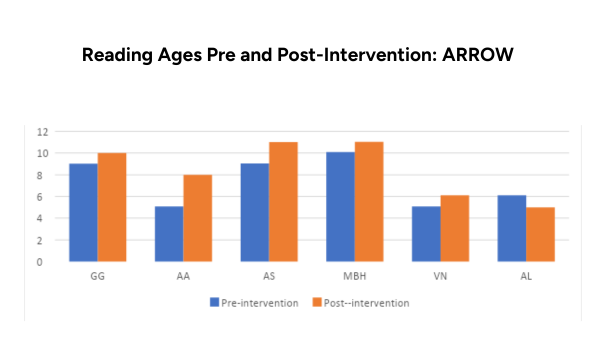
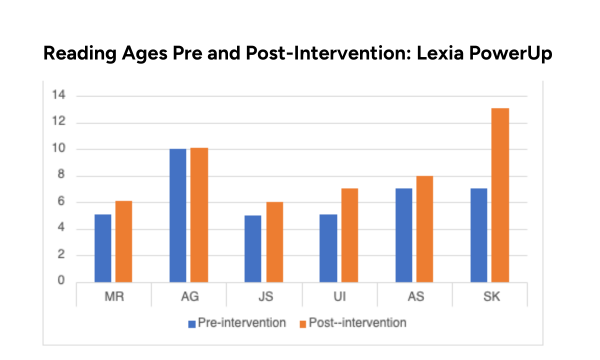
Conclusion and What next? Taking all things into consideration, Awo concluded that both interventions could have a place in her setting. The Lexia PowerUP intervention had greater levels of pupil engagement and was more cost-effective than ARROW. Moreover, many students utilised Lexia PowerUP outside of sessions, indicating eagerness and interest. That said, ARROW could be better suited for their KS4 students, where short, intensive interventions could facilitate rapid gains without unduly encroaching on essential curriculum time.
The research project has also identified the need for her setting to refine their baseline assessment process in order to gain a clearer understanding of students’ primary areas of deficit. Awo is considering replacing the current Schonell pre-assessment with the NGRT and NGST assessments for both pre- and post-assessments, as they proved to be particularly useful in this research project in order to pinpoint need in greater granularity.
She is planning to re-run the study on a larger scale to probe deeper into the results.
Darleen Grimsby – Enquiry-based Practice
Delegate Name: Darleen Grimsby
Course: Enquiry-based Practice
Qualification Achieved: MEd SEND & Inclusion
Project Title: Supporting mental health needs in non-speaking Autism Spectrum Disorder (ASD) children.
Read more about Darleen’s project
About Darleen:
Darleen is currently working as Deputy Head at a special school in Norfolk. She has recently been promoted into a senior SENCO role within the Academy trust where she will be overseeing SEND provision across multiple settings. As part of her master’s degree, Darleen studied our CCET, NASENCO and Dyslexia Leadership and Intervention modules. You can read her full review of the master’s programme here.
Her project has been identified as an area of interest by Norfolk County Council who are currently rolling it out on a much larger scale.
Masters Assignment 3:
Darleen chose to focus on supporting the mental health needs of non-speaking autistic children aged between four and 16 years old. The reason behind this was three-fold. Firstly, her setting was seeing an increasing number of non-speaking children with autism. There was a general acceptance that this was linked to anxiety and behavioural issues. In particular, there had been a recent interaction with a parent where Darleen had wanted to provide further support. Finally, it was an area that she was particularly passionate about, yet it is not as extensively covered in current research, compared to other aspects of autism.
Methodology: In total, nine professionals (from different specialist settings) and one parent participated in the study. It was a must that participants worked directly with non-speaking pupils diagnosed with Autism. Darleen used an open questionnaire to seek opinions around approaches and strategies to support the management of anxiety both in the moment and longer-term as well as descriptions of what emotionally distressed behaviours look like. Following the questionnaire, a focus group was held using a semi-structured interview style.
High-level Overview of Results:
Professionals and parents often referred to a number of shared techniques that appeared to work well to manage anxiety, when used holistically.
Fifteen sub-themes were identified. One of the most important (and least anticipated) was the importance of establishing a relationship with a well-known adult who the autistic child believes can meet their communication needs, which in turn builds trust and reduces anxiety. Once communication needs are met and the adult honours what they say will happen then the pupil feels like their essential need is being addressed. This helps to reinforce trust and build the relationship further. This triangular relationship, which Darleen terms the “known adult – relationship – trust” axis, turned out to be essential for both communication and managing self-regulation.
The parent in the focus group commented that their young person emotionally regulates through their trust in what they (as a parent) say and follow through on. This was a process built up over many years.
Aside from the above, the other sub-themes identified included the following;
Managing emotional distress in the moment:
- using scripts, primarily to promote a consistent approach no matter who the adult was present in the moment.
- using sensory and physical-related strategies
- soothing sounds
- leveraging distraction
- decoding the environment (unpicking the elements of distress and explaining how plans would be managed and the environment navigated) was an important aspect highlighted by a parent. This was used less by the professionals.
Strategies used regularly:
- Augmented alternative communication – particularly using personalised visual aids
- Sensory tools (physical and heavy work activities, weighted equipment, tactile play activities, oral equipment etc.)
- Emotional regulation strategies, such as praise and expressing empathy (although there were mixed opinions on the usefulness of Zones of Regulation and several professionals mentioned they were going to adapt it)
- Structured routines
- Knowing the pupil – (known adult-relationship-trust)
The role of communication
- Talking Mats
- Augmented alternative communication
Project impact:
The research findings were shared with staff and incorporated into a SIDP including a training plan for teachers and TAs in Darleen’s setting. She is striving to produce a communication-rich environment, working closely with speech and language professionals and using all that she has learned from the research project and wider master programme to enhance this.
Taking on board the mixed views on Zones of Regulation, Darleen is looking at developing an accessible version of zones of regulation, as a pre-cursor to the technique used in mainstream settings. She is planning to set up a working party to address this.
The research also uncovered other techniques that could be rolled out more widely such as talking mats and positive behaviour support. The importance of therapeutic approaches such as breathing techniques, yoga, massage, deep pressure and approaches from something like the adapted interoception curriculum.
Next steps: More staff are being encouraged to participate in the research and the bigger project conducted by Norfolk County Council is due to be completed this Autumn.
Helen El-Hoss – Enquiry-based Practice
Delegate Name: Helen El-Hoss
Course: Enquiry-based Practice
Qualification Achieved: MEd SEND & Inclusion
Project Title: How do Early Years teachers hear and respond to the voices of children receiving targeted support?
Read more about Helen’s project
About Helen:
As Head of Early Years at a British International School in Saudi Arabia, Helen is responsible for the academic development and pastoral care of the children in her setting. She is particularly proud of how well every child in our section is known by their teachers and teaching assistants and how both their strengths and areas of challenge are understood and supported. It is her aim that every child’s needs should be identified and supported, according to their own unique learning pathway.
Masters assignment 3: Helen chose to focus her research on developing children’s agency, particularly in children showing signs of speech language and communication needs.
Developing agency has been a major focus for Helen’s section in recent years. Through observations and discussions with colleagues, she recognised that some children find it easier to communicate their wishes and opinions than others and there is the potential for some signs to be missed. Children receiving Tier 2 targeted support, who showed signs of potential speech, language and communication needs were identified as the primary participants in the project.
Research goals: The focus of the project was on how the teachers hear their voices, and importantly, how their voices are responded to in offering agency to each child. Helen’s goals were to analyse the many ways in which children’s voices, whether verbal or non-verbal, are heard and responded to, so this could be identified as a strength for their section to build upon.
The questions her research set out to investigate included:
- How do Early Years teachers in our setting hear the voices of children who are receiving targeted support?
- How are the voices of children receiving targeted support used to inform the universal and targeted provision?
- What more can be done to hear and respond to the voices of children receiving targeted support?
The RADIO model of action research was used to guide the thematic analysis of a document review, semi-structured interviews with teachers and a group discussion with teaching assistants.
Research findings: There were many varied ways in which teachers, teaching assistants and parents in her school collaborated to hear and understand each child’s voice. The teaching assistants were particularly tuned in with a care-giving perspective on each child’s learning, development and needs.
Main findings:
- The study helped to clarify and build a shared understanding of the term ‘child’s voice’ across the year group involved.
- A child’s voice is sought as soon as their parents apply for them to join the school.
- Every action taken by teachers and teaching assistants is deliberate and planned to build their understanding of the child and where they are in their learning
- Children in Helen’s setting have high levels of input into the Tier 1 universal provision through a process developed within the school which they have named ‘Learning Leaders.’
- The setting would like to find ways to include children in creating and reviewing their Tier 2 plans for targeted support.
What next?
- An Atelier (workshop) was developed for quiet, calming, focused and creative activities
- A focus on the Reggio Emilia ‘hundred languages’ concept was developed through indoor and outdoor provision to provide children with a variety of means of expression
- There was continued emphasis on the communication aspect of children’s behaviour, linked to Positive Discipline which is embedded across the school. This included offering courses targeted towards parents.
Reflections. The teachers and teaching assistants who were involved in this study expressed appreciation for their own voices being heard and represented. Many, including Helen herself, thought that that it gave them a different and interesting lens through which to review their practice.
Celia Mascher – Enquiry-based Practice
Delegate Name: Celia Mascher
Course: Enquiry-based Practice
Qualification Achieved: MEd SEND & Inclusion
Project Title: An investigation into the use of visual supports in improving engagement and independence in pupils with severe learning difficulties
Read more about Celia’s project
About Celia:
Celia is currently working as the Lead Special Needs Coordinator at a school in Kenya and has been doing this role for over ten years. She works alongside a team that provides dedicated support to children with complex learning difficulties and disabilities (CLDD). The overall goal is to create an inclusive environment and ensure that children reach their potential.
Her completion of the various modules as part of the Masters programme has significantly boosted her confidence in her role. A key aspect of her responsibilities involves promoting and facilitating teacher training within the school. The course has equipped her with the necessary tools and ideas to carry out this task effectively.
Additionally, involving her colleagues in her research for the MEd was both inspiring and enlightening, ultimately enabling the team to implement a successful and sustainable intervention within the school.
Project goals: Evaluate the effectiveness of an intervention using visual supports to encourage children with SLD to become more engaged and independent in learning activities.
Her research aimed to answer the following questions for pupils in her setting;
- Do visual supports help increase engagement and independence for pupils with SLD?
- How do visual supports benefit a diverse student group with a range of complex needs?
- What are teachers’ views on visual supports and the effects of using them in a diverse SLD class setting?
Methodology: Four pupils with SLD were selected for the intervention. Before starting, some baseline information was gathered. The visual supports were subsequently introduced and new data collected after four weeks to assess the impact.
The team started small. A simple whole class visual timetable was set up using pictures to show the key activities of the day. For example, the first part of the morning routine was story time, followed by exercise and then whole class time. Some behaviour cards were also introduced to act as reminders to the children such as take shoes off, quiet, sit nicely and keep hands and feet to yourself.
In class, the teachers used individualised First/Next/Then boards with each pupil. They showed children a picture for when it was time to work one-to-one with the teacher. A “kazi peke yako” picture card (which means “work by yourself” in Kiswahili), indicated when the pupils should work independently on a Mathematics task.
Assessment and data collection: Pupils’ level of independence before and after the intervention was measured by measuring the number of prompts from an adult required for them to complete a maths task. Engagement levels were measured during morning storytime sessions, rating pupils on an engagement summary scale in terms of exploration and persistence.
Pupils’ level of independence before and after the intervention was measured by evaluating the number of adult prompts required to complete a maths task.
Prior to the intervention, teachers used the storybook only. After setting up the intervention, they created their own pictures and used puppets to encourage greater interaction and engagement with the stories. Qualitative data was also captured through a teacher focus group.
Research findings:
- All four pupils showed significant improvement in independence in learning with a reduction in the number of overall prompts required after the visual supports were introduced.
- Two of the four pupils showed significant improvement in engagement, while the other two generally maintained the same levels.
- Overall feedback from the teachers showed that the introduction of the visual supports resulted in a much calmer and less noisy atmosphere throughout the class.
- The teachers commented that the classroom visual timetable “prepares the pupils psychologically” for what is going to happen next. This has all led to “easy transitions”.
Project impact
After the team saw the results of the research, they felt it was important to keep the momentum going and expand the intervention to other settings within the school so that other children could benefit. Celia’s action plan involves a phased approach to introducing more visual supports within the school and includes all staff members who work with children with SLD.
Celia commented “A lot of research focuses on children with autism and I wasn’t sure how visuals would help children with other needs. I think all of the team involved in the project were surprised by how well the children responded to the intervention. It was really encouraging.”
Kayleigh Hutchison – Enquiry-based Practice
Delegate Name: Kayleigh Hutchison
Course: Enquiry-based Practice Module
Qualification Achieved: MEd in SEND
Project Title: The effect of the school dog on children with ASD
Read more about Kayleigh’s project
About Kayleigh:
Starting her career in teaching in an SEN school in the UK, Kayleigh has since gone on to become the head of inclusion in a primary school in Dubai. Kayleigh’s masters programme started with the NASENCO qualification, shortly after she moved to Dubai. Since then she has gradually built up her modules to complete her degree. Alongside the work she does and studies she has completed, Kayleigh explains her other areas of interest are; dyslexia and social, emotional mental health needs. Talking about her time with Real Training, Kayleigh explains she has really enjoyed the enquiries module and her project into the effect of the school dog on children with ASD. An area she says she is now particularly interested in.
Masters Assignment 3: Kayleigh’s area of research is surrounding the impact that time spent with the school dog has on the social skills, behaviour and emotional wellbeing of children with Autism Spectrum Disorder (ASD). Kayleigh’s research questions were as follows;
Does time with the school dog have a positive impact on:
- The social skills of three identified children with ASD?
- The behaviour of three identified children with ASD?
- The emotional wellbeing of three identified children with ASD?
- Can these effects be noticed during the session with the dog?
- Can these effects be noticed outside of the sessions with the dog, within the school setting?
In this study, Kayleigh used a mixed methodological approach of 3 case studies. It is worth noting that the dog involved was not specifically trained as a therapy dog and had not undergone any specialist training other than basic obedience classes and an early introduction to the school from a young age. The staff involved had experience working with both the dog and children with ASD.
The participants in this research were ages 4, 5 and 10 and had all been diagnosed with ASD. Kayleigh used pre and post questionnaires and semi-structured interviews. Data comparison was done through strength and difficulties questionnaires, comparisons of pre and post-Boxall Profile and qualitative observations for all 5 research questions.
The main outcome of this research was that time spent with the dog generally did have a positive impact on students with ASD, predominantly in the areas of social skills and behaviour. However, no improvements were found in the area of emotional wellbeing. The qualitative observations highlighted students’ enjoyment, development of confidence and improved communication over time.
What Next? Due to the success of Kayleigh’s research and the positive impact seen on students with ASD, it has been considered and discussed with key stakeholders, whether positive effects can be seen with children with other types of special educational needs. Therefore, they intend to use the Boxall Profile to assess students’ needs followed by a short-term intervention plan with 2-3 sessions per week with the school dog. They will then conclude with a discussion with the class teacher regarding any progress made and complete a post-intervention assessment using the Boxall Profile.
Caroline Showell-Rogers – Enquiry-based Practice
Delegate Name: Caroline Showell-Rogers
Course: Enquiry-based Practice Module
Qualification Achieved: MEd Professional Practice Dyslexia and Literacy
Project Title: The experience of SEN teachers adopting online teaching methods during the Covid-19 Pandemic
Read more about Caroline’s project
About Caroline:
Passionate about boys’ education, Caroline is entering her fifteenth year teaching at a top boys’ independent school in Oxford, UK.
As Learning Enrichment Coordinator for the last eight years, she completed further training several years ago with Dyslexia Action to develop an expertise in literacy development and difficulties. Following her training, she qualified to become a ‘specialist teacher/assessor’ and offers assessments, alongside her work in a school, to those who would like to better understand their cognitive strengths and weaknesses.
Caroline believes a deeper understanding of cognition and learning will empower educators to optimise the learning experience for all, leading to greater achievement and an inclusive environment where all participants are able to contribute.
Aiming to give voice to SEND teachers’ experiences of online learning, the theme of empowerment for colleagues runs throughout her project. She outlines the high value that a ‘trial and error’ organizational culture offers to staff and pupils and that empowerment of SEND pupils continues to be a key priority for teachers online. You can find out more about Caroline’s work here.
Masters Assignment 3: Caroline’s project focused on the experience of SEN teachers applying unfamiliar digital technologies during the lockdown. Whilst also exploring the success and tensions faced in trying to meet the SpLD needs of their pupils remotely using technology. Caroline’s research questions were as follows;
- With a move to online teaching during the Covid-19 lockdown, how did teachers’ use of digital applications to support their teaching change (or not change)?
- What aspects of teachers’ experiences during lockdown continue to influence them post-lockdown?
The focus group discussion involved five SENCOs who already had an established relationship. Discussions were framed around several key questions intended to generate open dialogue, guided by the 4-D cycle and themes identified in the literature. Alongside this, ‘Anna’ (pseudonym) was the case study teacher for Caroline’s research. A SEND teacher colleague who had worked for several years at the school alongside Caroline. Anna’s first experiences were recorded 4 months after the first lockdown in March 2020. Several months later, Anna had to enter a period of self-isolation, during which she moved her teaching online and lessons were observed.
The thematic analysis of the focus group and case study teacher comments found the following to be key factors of importance in the transition to online teaching for SEN teachers.
- Role of the organisation
- Role of parents
- Teaching values
- Teaching methods
- Physicality
- SEND specific impact
- The process of innovation adoption
Anna reflected on the frustrations of the new medium; not having physical manipulatives for demonstration, technical difficulties with real-time whiteboards, especially when a pupil was working from an iPad and her from her desktop. Anna also admitted that learning through a ‘trial and error’ approach “felt exhausting, demoralising and took a toll on her motivation!” However, Anna chose to base most of her decisions on her values rather than the technology available.
Discussions showed that where teachers saw positive effects on learning and engagement, teachers were more likely to use the digital innovations longer term. This study also highlighted that the role of parents in enabling success for teaching and learning of pupils with SEN in the digital medium is as important as organisational culture. Caroline found the project to be successful in addressing the original research questions around SEN teachers adopting new digital innovations. It confirmed many factors seen in the literature review were indeed important, as well as raising new areas for development.
What next? As Caroline used the RADIO model, the final stage of her project must be to shift the focus to ‘organisational change mode’. This requires using findings from the project to create change within the independent school community who have an interest in consulting further on the findings.
Plans moving forward are to have continued termly meetings amongst the stakeholders of this study who have expressed an interest in continuing discussion on trialling new digital innovations in their teaching. The next steps for Caroline included drawing up findings from the enquiry into an article for the Independent Schools and Governance Matters magazines. Caroline hopes this will elicit reflection, wider dialogue and further study on the issues for SEN teachers with moving to online teaching.
Jaime Warr – NASENCO
Delegate Name: Jaime Warr
Course: The National Award for SEN Coordination (NASENCO)
Qualification Achieved: Postgraduate Certificate SEND: National Award for SEN Coordination
Project Title: Supporting the assessment and provision of services for pupils with SEND
Read more about Jaime’s project
About Jaime
Jaime started her career as a teaching assistant in a learning support unit within an inner-city secondary. Since then she has worked in many different roles within education; as a learning mentor lead practitioner within a multi-agency support team, a manager of a learning support unit within mainstream secondary, and in a pupil referral unit where she progressed to Head of English and led literacy development.
Jaime now works as an Assistant Principal – SENCO at Springwell Academy Leeds (North Site). This is one of the three largest specialist SEMH provisions within Leeds.
Jaime completed Real Training’s NASENCO and CPT3A courses before going on to gain her full master’s degree. She reflected that the courses “gave me a greater understanding of the essential frameworks required to support a complex range of needs.”
Masters Assignment 3: Jaime explains that throughout her time at the PRU she struggled to understand the role and responsibilities of the SENCO and the impact they should be having. Therefore, she aimed to develop a Comprehensive Learning Profile system, to support young people’s individual needs more effectively. Analysing former systems used by the school, Jaime began planning her project.
After a variety of discussions, Jaime established that one of the main points raised was the usefulness of a SEND tracking system. Alongside, understanding exactly what needed to be measured. It was also agreed with colleagues that the school needed to step away from a behaviour focus and consider the bigger picture of each young person. Furthermore, it was established that for any support services put in place, their success would be measured in terms of attainment and progress. When designing the data profiles for each student, Jaime wanted these to include the following;
- A summary of background data
- Baseline assessment results
- Strengths and Difficulties Questionnaire results (SDQ)
- Recommended support and intervention through my analysis of data received
- Suggested strategies to support teaching and learning
- Tracking of engagement and progress
- Termly learning targets
- Details of any specific interventions put in place and impact.
To understand the impact of the intervention so far, Jaime issued an anonymous questionnaire to her colleagues asking them to rate the system in terms of usefulness, practical advice, support and areas requiring further clarity or training. They were also asked to submit any suggestions for improvements in the coming year. The majority of feedback came from teachers/instructors within the school and some of the results are shown below.
What Next? Jaime felt her project was a good starting point for moving the school forward. Although conscious that there would still need to be developments to the systems, Jaime said at the time, “My SEND project has raised my awareness of the feedback I am giving to staff about students and the importance of the Profiles growing organically through collaborative working.”
Jaime felt that the school needed to focus even more on offering structured support for social and emotional needs before any inroads in learning could be made. This needed to happen alongside investment in quality training for staff on targeted SEND support for SEMH needs. Jaime presented her ideas around long term staff training to the Senior Leaders for consideration. As Jaime has now progressed in her career into a senior leadership position, she is in the perfect place to drive change.
One of Jamie’s key strengths is her ability to reflect on challenges from many viewpoints, having both the experience and empathy to support the hard work of her colleagues who continue to teach, guide and nurture the most vulnerable young people in the city. She wanted to add that she welcomes contact from any future NASENCO students within the locality who wish to experience a SEMH setting as part of their training.
Kimberley Craig – Enquiry-based Practice
Delegate Name: Kimberley Craig
Course: Enquiry-based SEND Practice
Qualification Achieved: MEd in SEND
Project Title: Online Learning During Lockdown.
Read more about Kimberley’s project
About Kimberley:
Having started her career as a Learning Support Assistant, Kimberley went on to train as a secondary teacher and is now SENDCo at a small independent school in the South of England. She is currently interested in the impact of poor working memory on the learning process, and how this can be successfully accommodated within the classroom.
Early in her career, an opportunity to work with long-term unemployed people, many of whom had unaddressed learning difficulties, inspired Kimberley’s interest in SEND and desire to train as a SENCo.
Kimberley completed her National Award for SEN Coordination with Real Training and also went on to complete CPT3A. She then made the decision to complete the MEd in SEND programme, completing; Speech, Language and Communication Needs to be followed by her Enquiry-based SEND practice module. Originally her research was going to be classroom-based, around the picture superiority effect and dual-encoding. However, the pandemic prompted Kimberley to pivot to investigating how students learn online and the importance of important self-regulation and metacognition for independent learning.
This had a positive impact on the delivery of online learning through the third lock-down. The link between self-regulation, metacognition and learning has been applied to classroom-based practice for SEND students by Kimberley and is part of the training programme for the school and QFT.
Project Goals: The research was based around three key research questions,
- Which (if any) aspects of online learning do SEND students struggle with compared to students without SEND?
- What methods of online learning result in more accessible learning for the sub-groups of learners?
- Is the amount of parental involvement related to the sub-group of SEND?
Kimberley carried out constructivist action research on the delivery of online learning for children during the lockdown. She also found it to be a reflective process as she has been delivering online learning whilst conducting this research. The target sample for participants was parents, including 52 parents of non-SEND students, 12 of those on the SEND register and four with an EHCP.
Research Findings: Kimberley’s findings supported her hypothesis that SEND children were struggling more with online learning than non-SEND children, and in particular found self-regulation a challenge.
Kimberley’s research found that students with SEND engaged less in online learning than those without those needs, indicating that the reasons for this were due to lack of self-regulation and metacognitive skills. Poor ICT skills could have contributed to this as well as the lack of diverse learning methods. SEND students engaged better with the synchronous learning tasks, mirroring the theory that suggests this sort of activity requires less self-regulation and metacognition.
Two areas where Kimberley found her survey did not match her initial hypothesis included the following,
- SEND students were not engaging and benefitting from discussion boards
- The time the parent spent with the SEND child did not have a positive impact on progress. However, the data showed that non-SEND students engaged better with the asynchronous learning task. Supporting the theory that non-SEND students have better self-regulation and metacognitive skills than SEND students.
With regard to parental input and impact, Kimberley felt there were valid reasons for this, and through training and development this could be addressed.
Samantha Bunce – Enquiry-based Practice
Delegate Name: Samantha Bunce
Course: Enquiry-based SEND Practice
Qualification Achieved: MEd in SEND
Project Title: An evaluation of whether using SLCN resources in combination with the usual approach to improving literacy will improve students literacy levels by a greater degree than literacy teaching alone
Read more about Samantha’s project
About Samantha:
Samantha starting teaching Chemistry when her youngest child started school. She has now been teaching for 15 years and has been Head of Chemistry as well as a Chartered Science Teacher.
Around four years ago, Samantha changed roles and did her NASENCO training with us. She went on to complete our CPT3A qualification enabling her to apply for exam access arrangements.
At this point, having completed 90 masters credits, Samantha decided to go on and complete another two courses enabling her to gain her MEd in SEND.
Samantha’s project was based on Speech, Language and Communication needs as these were prevalent in the school she was working in and are often undiagnosed in children with literacy issues. The information from the project was used to design an entire programme of support for year 7 students with SLCN needs. Samantha is currently supporting students with a wider range of SEMH issues and introducing testing to screen students for potential SLCN difficulties.
Project Goals: Samantha investigated whether the combined use of SLCN resources alongside a literacy scheme improved literacy scores in students with low literacy levels and SLCN, more than the literacy scheme alone.
Her research project also had the following aims;
- To develop a programme of resources to improve the literacy levels of students with SLCN.
- To gather information on the participant’s perceptions of their confidence and attitude towards learning in general after taking part in the SLCN programme.
Samantha focused on improving inferencing and linking skills; an area that many students with SLCN find difficult and may not have acquired the necessary skills to be able to do successfully.
Research Findings: Samantha found that during her research there were many variables beyond her control. Including the complete lockdown of schools, isolating the vast majority of students from friends, teachers and education supported by qualified professionals. Some of the key findings are outlined below;
- The literacy progress results for the resilience (control) group are in line with what is normally achieved by year 7 literacy group students over a 10 session cycle. The literacy progress results for the SLCN group were far more positive, particularly the Single Word Reading measures, which was around double the increase in standard scores seen in the resilience group.
- The results of the self-esteem questionnaire were very interesting. Samantha was expecting the resilience group, who were given support to help build their resilience in school to show a greater increase in self-esteem than the SLCN group. In reality, both groups had about the same increase in self-esteem.
- The average for each group showed very little difference in the increase of self-esteem. The student comments gave a possible explanation for this – the SLCN group comments included that the students felt more confident to be able to read in lessons and felt that they could understand lessons better, both of which had a positive impact on their self-esteem.
- For the resilience group, most of the comments were aimed towards knowing who to go to when they needed help and support at school or at home. This suggests that although self-esteem was boosted in both groups, it was for very different reasons. Samantha now anticipates that running the year 7 literacy groups next year with the SLCN resources included will improve progress in reading, spelling and self-esteem.
Moving forward, Samantha highlights that “opportunities have arisen in the running of the SEND department for the next school year that can be seen as direct outcomes of my research. The first is an agreement between the SLT and governors for key students to continue to benefit from this intervention next year.”
Hannah Smith – Enquiry-based Practice
Delegate Name: Hannah Smith
Course: The National Award for SEN Coordination (NASENCO)
Qualification Achieved: Postgraduate Certificate SEND: National Award for SEN Coordination
Project Title: Implementation of Precision Teaching to improve SEND children’s mathematical fluency
Read more about Hannah’s project
About Hannah:
Hannah is an Assistant Headteacher, DSL and SENCO. Describing the school in which she works as a “bustling three-form entry school in West Yorkshire”. After completing the first two years of her degree at the University of Brighton, Hannah transferred to Bradford College. Starting at Wibsey in 2009 as an NQT, Hannah progressed to being a middle leader with responsibilities of SEND interventions and then on to being Assistant Head and leads pupil premium progress across the school.
With the current SENCO retiring, Hannah was asked to come out of class and be a full-time DSL and SENCO. She says “I miss being in the classroom with the children, but my role now is so diverse that no day is the same and I get to impact more children right across the school.”
Through regular SENCO networking meetings arranged by the local schools in her area, Hannah had heard about the different courses available. She chose Real Training’s NASENCO course because she “wanted the flexibility to do my job properly and give every effort to the children and families without having to take days away to attend sessions.”
The course really helped Hannah understand the legislation, research and progression in SEND over the years and how that impacts practice today. When completing paperwork for referrals or EHCPs she can now see the thought process that has gone into ensuring the very best provision for all pupils.
Masters Assignment 3: At Hannah’s setting, 22% of pupils are on the SEND register. Many of these children were having trouble retaining number facts, which in turn was impacting them mastering more complex skills and slowing down progress. After meeting with the Senior Leadership Team, it was decided that Hannah would do some research and speak to professionals for advice on interventions that could be implemented to address this issue.
Precision Teaching was recommended by the Educational Psychologist (EP) and Cognitive and Learning Team from the local authority. After receiving this advice and doing some research of her own, Hannah and another colleague had training from the local authority EP team in precision teaching.
This was taken back to the school and trailled with several children. All teachers were focusing on math skills for Precision Teaching. The programme ran for 12 weeks, with progress recorded on Excel sheets and in files. During that time, the staff said that the children’s confidence has improved, alongside a willingness to answer questions, including more attempts at more challenging problems. Furthermore, the number of correct answers during mental arithmetic tests have improved and calculations have fewer mistakes in them. There was also positive feedback from the children involved, with all three children asked stating that they have been enjoying precision teaching and they are more confident with their fluency in maths.
What next? All teachers have since set up their new Precision Teaching files and in the first week back in school will be working with the children to assess what skills they need to practice.
Data will continue to be tracked and progress reported to governors, senior management and leadership teams. Precision Teaching will now be transferred to other areas of the curriculum to increase fluency in those areas too. There will also be advice offered to parents regarding how they can support the programme from home.
Rachael Knight – NASENCO
Delegate Name: Rachael Knight
Course: The National Award for SEN Coordination (NASENCO)
Qualification Achieved: Postgraduate Certificate SEND: National Award for SEN Coordination
Project Title: A case study analysis of an individual child, focusing on the assessment, planning, implementation and review of an intervention to support the development of their emotional competence
Read more about Rachael’s project
About Rachael:
Rachael is currently Head of School at Running Deer School, a small SEND provision based in woodland on the edge of Dartmoor. She works with children and young people who come from other settings, often feeling like they have failed, lack self-worth and do not trust adults in school easily. Rachael is the Designated Safeguarding Lead and SENCO. Prior to the work she does now, Rachael was a lecturer in initial teacher education at Plymouth University. She had also previously worked in a variety of SEND and mainstream schools.
Rachael is passionate about inclusion, and the right for all children and young people to access learning. She studied NASENCO with Real Training and “thoroughly enjoyed it”. Rachael says “My tutor was incredibly supportive and her feedback was invaluable, the opportunity to have a placement in another school was so helpful and has really shaped my practice”.
Masters Assignment 3: In her assignment, Rachael works with a young individual who has an Education and Health Care Plan (EHCP) along with a diagnosis of autism. The child attends a small independent school for young people with Special Educational Needs (SEN). In response to some challenging behaviour regarding the child’s ability to express emotions, the decision was taken to develop an Emotional Curriculum to be taught one-to-one on a weekly basis.
Rachael’s assignment looks at the rationale behind the development of this and the approach taken to its assessment and implementation. She also goes on to analyse the impact of the programme on the child’s emotional and social competence. Using the Strengths and Difficulties Questionnaire (SQD) scoring system to review the ‘before’ and ‘after’ SDQs, Rachael looked at five categories of behaviour. These were; prosocial behaviour, hyperactivity, emotional problems, conduct problems and peer problems. However, the category of hyperactivity was not considered as it fell outside of the remit of the Emotional Curriculum. Since the introduction of the Emotional Curriculum, scores for each category (except for peer problems – which scored close to average) alongside the overall total difficulties score showed a positive change.
What next? There have been positive changes in the SDQ score relation to prosocial behaviour, emotional problems and conduct problems and in the total difficulties score. There have also been a decrease in autistic meltdowns and the child’s parents reported that “he is much more able to describe how he feels and talk about his feelings” than before the Emotional Curriculum had begun.
Rachael also found that although the child had been able to correctly name emotions that a person may experience within hypothetical situations, he was often unable to recall how he had felt in situations. Rachael states “this is an area I wish to develop within the Emotional Curriculum, after first further researching the potential impact of ‘difficulty in forming a meta-representation of one’s own mental states’ in autistic children and young people.
Edward Stones – Enquiry-based Practice
Delegate Name: Edward Stones
Course: Enquiry-based SEND Practice
Qualification Achieved: Enquiry-based SEND Practice
Project Title: An Online Study of Differentiation in Bruneian State Primary Schools
Read more about Edward’s project
About Edward:
Edward works for the Educational Development Trust (formerly CfBT) as a Specialist Language Teacher and regional SENCO responsible for students studying in remote, rural schools in Brunei.
Since graduating as a teacher from the University of East Anglia in 2003, Edward has worked predominantly in South East Asia as a teacher and HoD in the areas of EAL and Special Education. Through his research, Edward feels that he has been able to contribute to the greater understanding of SEN in Brunei.
In 2016, Edward undertook his NASENCO course. Since then he has gone on to achieve the MEd in SEND and CPT3A qualification with Real Training. Completing his MEd during the Covid-19 lockdown in Brunei, Edward had to change the nature of his research and design mid-flow. However, he explains “My tutors were very supportive and I was satisfied with the results as I managed to obtain and process a great deal of information from a large pool of teachers in Brunei on their personal views and ideas on classroom differentiation”.
Edward’s research helped him develop more professional development opportunities and harness teacher’s views to make training on differentiation more meaningful and effective. Edward is proud to have earned a distinction for his MEd with Real Training and Middlesex University. Edward is currently establishing the first SEN consultancy in Brunei and is carrying out SEN and Access Arrangements assessments for students, both face to face and online.
Edward says that Real Training has “…allowed me to greatly expand my working possibilities and given me the acknowledgement and accreditation that I sought”.
Project Goals: Edward investigated the problem of classroom differentiation, carrying out action research online with English Teachers in Brunei. Edward obtained qualitative feedback from teachers through an internet survey and online interviews. Transforming this feedback into a comprehensible format helped stakeholders such as the Bruneian Ministry of Education understand what methods need to be employed to improve classroom differentiation. Edward attempted to answer the following questions in his research;
- What strategies do teachers use to differentiate (in terms of content, process, product, grouping, learning environment) in Bruneian classrooms?
- What benefits/disadvantages do teachers see in differentiation?
- What impact does differentiation (or lack of differentiation) have on students?
- What do teachers offer in terms of enrichment?
- What training do teachers want related to differentiation?
- What are the barriers to differentiation?
Research Findings: Below is a brief summary of some of Edward’s findings, in relation to each research question.
- According to the qualitative data, teachers’ strategies focused mainly on using differentiated texts. Only one teacher mentioned using mixed ability grouping, which has been found to be preferable as it allows students to see themselves in a variety of contexts and aids the teacher in “auditioning” students in different settings and with different kinds of work (Tomlinson, 1995, 1999).
- Teachers summarised the benefits of differentiation as increased attainment through personalised learning, more choices of learners and increased motivation.
- It was clear that teachers think the biggest impact of differentiation is that it meets children’s social and emotional needs. ‘Improved Confidence’, ‘enjoyment’, ‘motivation’, ‘self-esteem’ and ‘excitement’ were mentioned several times by teachers in the study.
- 50% of teachers involved in the study claimed there were not enough enrichment programs in their schools.
- Just under half the teachers surveyed claimed to have never received any training on differentiation and only 5 additional teachers claimed to have received training related to differentiation since arriving in Brunei, largely provided by their school.
- Edward acknowledges that the barriers to differentiation are complex and varied. Time and workload appear as significant barriers to a few teachers. As well as physical barriers there are the intangible; changing learner and school culture appears to be a barrier as perceived by some teachers.
Edward feels that his study was beneficial in terms of highlighting differentiation as an issue and allowing teachers to find their own voice, compare barriers and share their strategies. The 2020 study revealed that new thoughtful strategies and commitments are required to ensure the continuation of classroom differentiation.
All teachers involved in the study were interested in receiving further training on differentiation and the Stakeholder Group met with the management team at the Bruneian MoE to air the results of the survey and discuss opportunities for action.
Rivkie Ives – Enquiry-based Practice
Delegate Name: Rivkie Ives
Course: The National Award for SEN Coordination (NASENCO)
Qualification Achieved: MEd in SEND
Project Title: Assessing teachers’ attitude and its impact on their inclusionary practise in senior school
Read more about Rivkie’s project
About Rivkie: Rivkie is the current headmistress in Monsey Beis Chaya Mushka (MBCM), an all-girls high school in Upstate New York, USA. She has also previously worked as the SENCo at Lubavitch Senior Girls’ School in London.
Rivkie is passionate about social and academic inclusion for all, especially those with special educational needs and disabilities. In her search for methods to improve inclusion of all students socially, she began to run experiential workshops on social inclusion in the United Kingdom, Europe and the United States.
Finishing her Bachelor of Arts degree with the University of Greenwich, Rivkie then went on to gain her QTS and begin studying for her MEd in SEND with Real Training. Rivkie’s MEd was made up of the National Award for SEN Coordination (NASENCO), the double Dynamic Assessment qualification and completed with the final Enquiry-based research module.
Rivkie’s research focused on the current practises of academic inclusion within her setting, MBCM. She states “I was amazed by how much my staff and I gained from this research and how much it has empowered us to forge on in our quest for academic inclusion for all students.”
Project Goals: Rivkie’s research goal was “to better understand how we can improve the inclusion of students with special educational needs (SEND) in our small faith-based privately funded senior school.”
Rivkie looked at three specific research questions;
- What the attitudes of teachers contribute towards inclusionary practice in the classroom?
- What existing strengths and competencies to promote inclusion are practices in the school?
- How may it be possible to build on existing strengths to expand the teachers’ inclusionary horizons and practices?
Research Findings: Rivkie’s findings were compiled from responses given by 70% of teachers asked. You can see the findings of the research below:
- The research suggested that there were two types of attitudes when it came to inclusion. In-principle, teachers believed that every student is responsible for their learning, by using the tools provided to them. In practice, teachers believed substantive inclusion, whereby students learn side-by-side whilst progressing each on their own level, did not appear to be occurring within the school. Rivkie also highlighted that none of their staff have received a basic education in SEND, stating that “this would imply that through sufficient training teachers will develop the skill necessary for inclusion. Since the desire and rapport already exist.”
- When teachers were asked what strengths they already see in the school, 12 felt that support from their colleagues was a strength while 9 felt that support from the senior management team was a strength. Rivkie was surprised to find that quite a high number of staff highlighted the strong extracurricular offering that our school provides as giving prominence to all students including and especially those with SEND.
- Rivkie believes that although they may not have all the tools and training they would like, the ability to coach teachers in-house proactively and productively is something that can be implemented with ease and immediate effect. Stating “the availability of resources and tools enabling inclusion has already made its mark in our school. Teachers have modified books, Braille materials and printers, science manipulatives and the like. Teacher feedback makes it clear that these resources are being used and are impactful, thus emerging as yet another theme in the study.”
As a result of Rivkie’s research, an action plan has been put in place. You can see this below. Rivkie concludes her research in a sentence “empowered teachers lead to empowered students.”
| Action | Action was taken by whom? | When? | Evaluation: |
| Regular staff meeting to discuss the challenges of the students | Senior management staff via zoom | Immediately at the start of the new school year, every two months thereafter | Teacher, Parent and student feedback |
| Staff coaching | Principals and/or hired teacher-coaches | Coaches Immediate effect | 1. Teachers receiving professional coaching will fill in logs on how impactful these sessions have been. 2. Teachers receiving coaching from senior staff or peers will give immediate feedback on how impactful the sessions have been. |
| Training to meet staff needs | Senior management staff | 1. The first training in September 2020 on group work 2. November 2020 on differentiation | 1. Headteacher and/or presenter observation of group work 2. Headteacher and/or presenter observation of differentiation 3. Student feedback |
| Training in social inclusion | Senior staff Form teachers Head of extra-curricular activities Youth leaders | Before the start of the year, the researcher to meet with the senior staff, form teachers, head of the extra-curricular activities and youth leaders to discuss ways to be more inclusive. Researcher to share research that was carried out including activities that can be used with immediate effect | 1. Interview teachers 1-8 again and see how they feel the social inclusion has progressed 2. Researcher to observe students during free time to see if inclusion has improved 3. Those involved in running and executing extra-curricular activities will chart progress in their attendance at events |
Zoey Slack – Enquiry-based Practice
Delegate Name: Zoey Slack
Course: Enquiry-based SEND Practice
Qualification Achieved: Postgraduate Certificate SEND: National Award for SEN Coordination
Project Title: Social Use of Language Play (SULP) and Lego Therapy Interventions supporting Personal, Social and Emotional development of a child diagnosed with Autism Spectrum Conditions (ASC)
Read more about Zoey’s project
About Zoey:
Zoey started her career as a classroom teacher in a mainstream school and has taught for 13 years. Recently, she took up the role of SENCO in her primary school, embarking upon the NASENCO qualification with Real Training. The course enabled her to understand the legislation and frameworks that underpin special educational needs and the role of primary settings.
Her master’s project gave her invaluable insight to explore how specific social communication interventions impact upon female pupils, with a diagnosed Autistic Spectrum Condition (ASC).
Subsequently, this informed Zoey’s assess, plan, do, review cycle, reviewing current internal practices and interventions beyond those targeted at pupils with an Autism diagnosis and adopt a consistency in delivery amongst all colleagues for optimum impact on pupils’. Zoey said the following, “this study and course have not only supported me in reviewing internal practices to offer the ‘very best’ for pupils within my setting but to share my knowledge wider, as a whole school SEND reviewer”.
Masters Assignment 3: Zoey outlined the need for this research, accompanied by data evidence. The child of interest (Child A) had made minimal progress in the area of Personal, Social and Emotional Development (PSED) over time. Zoey’s result showed that compared to the average child who is expected to make one-development matters band progress over three terms, Child A only made one-development matters band progress over seven terms.
She also found using the Boxall Profile assessments method that Child A had the following priority areas of need:
- showing insightful involvement
- accommodating others
- showing inconsequential behaviour.
From this, the recommendations for areas of focus were; exploring imaginative play, encouraging small group interactions, involving puppetry play, nurtured turn-taking through a practical and a kinesthetic approach.
An SEN support plan was devised, targeting the specific areas of need. Targets were specific, measurable, achievable and realistic. Zoey goes on to discuss, interventions used by professionals to assist children with Autism. She discusses; Social Stories, Lego Therapy and Social Use of Language Play (SULP). She goes on to explain that for Child A, Lego Therapy and SULP are most appropriate and reflective of Child A’s interests and needs. Further discussions, regarding the delivery of the chosen interventions and evaluation of its impact over the assessment period, were detailed.
What next? As a result of the impact of the interventions the decision was made to continue with the programme devised for the child until the end of the Spring Term. This was as a result of positive feedback from parents, the child’s enthusiasm, the progress made and to observe the impact of the programme over a longer period of time.
In conclusion, Zoey highlights that practice-based evidence, as well as the exploration of the published literature, is fundamental to whether programs actually work for pupils. Completing a small scale study, evaluating impact and then transferring these learnt ‘what works’ for pupils to the whole school, will benefit more pupils in their settings over time.
Priyadarshana Shah – Enquiry-based Practice
Delegate Name: Priyadarshana Shah
Course: Enquiry-based SEND Practice
Qualification Achieved: MEd in SEND
Project Title: An account of an enquiry-based practice on the mathematical resilience of high school students with an individual education plan
Read more about Priyadarshana’s project
About Priyadarshana:
Priyadarshana completed her BSc (Hons) Psychology in the UK in 1993 and has been teaching for nearly thirty years.
She started off working in secondary mathematics in a private British community school in Kenya and was also their dedicated SENCO. In 2005, Priya joined another school in Kenya and currently works as a high school maths teacher as well as Learning Support Case Manager for grades 11 and 12.
Priya was looking to build her assessment skills and gain a place on the British Psychological Society’s (BPS) Register for Qualified Test Users (RQTU). She found the Real Training CPT3A course online and was subsequently encouraged by her school to achieve the full masters. Priya’s research project has recently been published online by The International Educator. You can read more about her learning journey here.
Project Goals: Priya wanted to investigate how schools could develop resilience in math to tackle the issue of students who were struggling. In her research she asked four main questions, these were:
- How mathematically resilient are students with SEND?
- Does a course on how to learn math effectively support the development of mathematical resistance (MR)?
- What are the students’ perceptions of their own MR?
- What are the teachers’ perceptions of the MR of students?
Priya focused on high school students with an individualised education programme (IEP) from grades 9 to 12. Her other participants were parents, high school, and high school math teachers. From the students, 32 out of 33 were given permission to take part, the whole Learning Support (LS) team gave their consent to take part, administering the written tasks, questionnaires and intervention. Finally, the math department gave their consent to participate in the research – allowing observation of some of their classes, answering teacher scaling questions and writing reports on students.
Research Findings: You can see Priya’s findings to each of her questions below:
- How mathematically resilient are students with SEND?
It was predicted that the scores would be lower than the published research, primarily because of two barriers – their special educational needs and gaps in maths skills and knowledge due to their status as ‘third culture kids’. However, this was not the case – in reality, the sample was comparably resilient to the normative sample of the research.
- Does the intervention support the development of maths resilience?
Yes, the sample was somewhat mathematically resilient to start with, albeit, the intervention has generally developed their maths resilience positively.
- What are the students’ perceptions of their own maths resilience?
Immediately after the intervention, student perception on a scaling question ranged from 3 to 10. The most frequently occurring score (mode) is 7. This is an indication that students perceived their resilience as good.
- What are the teachers’ perceptions of the maths resilience of students?
Priya found there to be mixed results. Pre-intervention there was support in acknowledging that students with an IEP need help in maths and may struggle. However, the maths teachers’ reports on students were varied. Alongside this, there was some indication that grades are not a good measure of maths resilience and tell nothing to students and parents of their resilience. Overall, Priya found that the Stanford University free online course ‘How to Learn Math: For Students’ made a positive impact on the MR of students with an IEP in her setting. As a result of Priya’s research, the school’s action plan will prepare all students to learn maths effectively by becoming mathematically resilient.
Jo Johnson – Enquiry-based Practice
Delegate Name: Jo Johnson
Course: Enquiry-based SEND Practice
Qualification Achieved: MEd in SEND
Project Title: An evaluation of STLS collaborative teacher coaching on school capacity for meeting the needs of learners with SEN
Read more about Jo’s project
About Jo:
Jo started her career as a speech and language therapist and worked in both mainstream and special schools. After qualifying as a teacher in an SLCN Specialist Resource Provision, Jo worked as an outreach teacher in mainstream schools and as a SENCO. Following that she took up a role in the Specialist Teaching and Learning Service (STLS) with Kent County Council as a specialist teacher for cognition and learning. She continues to support pupils in local mainstream primary and secondary schools.
Jo is also the author of ‘Sounds into Words’, a Language For Learning resource designed to support differentiation of the Letters & Sounds Literacy programme for pupils with Speech, Language and Communication Needs.
The Enquiry based SEND practice module gave Jo the opportunity to explore how mainstream teachers can best be supported by specialists such as STLS to adopt a wider range of whole-class inclusive teaching strategies. This allowed her to develop an innovative approach to working with schools using the principles of Lesson Study and peer coaching. She has been invited to present her project at the Inclusive and Supportive Education Conference (ISEC) ‘Closing the Research to Practice Gap’ in 2021.
Project goals: The project research aimed to explore the extent to which collaborative teacher coaching builds capacity in schools to meet the needs of learners with SEN. In a collaborative classroom, teachers combine their strengths to work together, coach one another and provide the best possible environment for their students. Joanna considered four main research questions during her project;
- How does collaborative teacher coaching develop SENCO confidence and effectiveness as a contributor to the development of Quality First Teaching (QFT) for SEND?
- Which aspects of collaborative teacher coaching are most useful to teachers?
- To what extent does collaborative teacher coaching improve pupil learning?
- To what extent is collaborative teacher coaching an effective and manageable way for STLS to deliver training to develop QFT for SEND in schools?
Across three primary schools in Key Stage 2, six focus pupils with SEN were identified along with a ‘team around the class’ which consisted of the class teacher, a second teacher from the same school and the SENCO.
Research findings: Jo organised her findings under her three research questions;
- How does collaborative teacher coaching develop SENCO confidence and effectiveness as a contributor to the development of Quality First Teaching for SEND?
Jo found that the project provided the framework, time and opportunity for SENCOs to re-engage with the classroom and share their expertise more effectively with teachers. SENCOs unanimously agreed that they had found the project’s focus on pupil learning rather than teacher practice extremely helpful.
- Which aspects of the collaborative teacher coaching process were most useful to teachers?
Prior to the project, teachers expressed feelings of vulnerability about the slow progress and lack of engagement of their SENS pupils and described their learning as unpredictable and difficult to assess. Teachers were unanimously positive about the shift of the evaluative gaze away from them and onto the learning of their focus pupils.
- To what extent does teacher coaching improve the learning of pupils with SEN in the classroom?
Data from lesson observations and work sampling showed improvement to pupil learning when appraised against the lesson objective and success criteria, as shown in Fig. 6:
In one of the most powerful moments of the project, a class teacher remarked that it was the first time his focus pupil had been asked to write and not cried.
- To what extent is collaborative teacher coaching an effective and manageable way for STLS to deliver training to develop QFT for SEN in schools?
All the research data indicated that collaborative teacher coaching is an effective way for STLS to work. Despite appearing more time consuming on the face of it, the time invested was actually comparable with a typical cycle of school visits over a year for one pupil (approximately 9 hours). From the STLS perspective, therefore, this model appears to offer a manageable alternative to individual casework while also building capacity in schools to teach inclusively.
Overall, this project had a positive impact on the learning of the focus pupils, increased the perceived effectiveness and confidence of the participants and offered a and manageable alternative model for STLS engagement with schools.
Bronwyne van Zyl – Enquiry-based Practice
Delegate Name: Bronwyne van Zyl
Course: Enquiry-based SEND Practice
Qualification Achieved: MEd in SEND
Project Title: Picture This! Spelling
Read more about Bronwyne’s project
About Bronwyne:
Bronwyne van Zyl is an experienced Specialist Dyslexia Teacher with seventeen years’ of international experience. She specialises in specific learning differences and academic assessment and has focused on empowering children with learning differences and building their confidence.
She is the author of ‘Picture This! Spelling,’ a pencil-free approach to effectively teach irregular word spelling using visualisations and mnemonics. Fun, creative and effective, it has been proven to deliver results, increase self-esteem and academic progress. She studied with Real Training in order to attain her Master’s degree in SEND, having started her learning journey with us by completing the CPT3A course, qualifying as a Test User and Access Arrangements Assessor. As part of her MEd SEND, she conducted research on tailored spelling intervention.
Project goals The goals of Bronwyne’s project covered three research questions about the efficacy of spelling interventions across a variety of specific needs. The hypothesis was if spelling error trends are analysed and investigated and multisensory interventions are implemented targeting those errors, then hopefully we would begin to see an increase in spelling scores as well as an increase in confidence within the classroom. The research questions were:
- How can spelling interventions be tailored to target students specific needs based on set parameters and error trends?
- How can we develop a more consistent approach to spelling with regards to the delivery of the intervention and in-class support, across years 1 – 3?
- When spelling error trends are targeted within an intervention, do we see a holistic improvement with regards to confidence, skill and attainment within the classroom?
Research findings The research was focused on Foundation stage one to year 3 at a British school in Dubai, which caters for children 3-18 years of age.
- 94% of students showed improvement in obtained standardised scores from baseline to progress assessments.
- 91% of students taking part in the research indicated an improvement in self-confidence between the start and end of the interventions.
Project impact As a result of this research, the school identified spelling intervention as being in need of further investigation, and that baseline data could be used to identify students who needed support. “Based on the research undertaken I further developed a spelling programme called ‘Picture This! Spelling.’ The programme is an innovative pencil-free spelling programme that addresses irregular words and supports retention and recall through the use of visualisations and mnemonics.”
Picture This! Spelling has subsequently been published and has been awarded the British Dyslexia Association Assured Product Status, making it accessible to schools all over the world. The programme has since been used by specialist teachers working with students who have severe to moderate learning barriers, as well as in Early Years education, English as an Additional Language and those learning English for the first time, further cementing its value within inclusive learning environments. “I developed the programme based on my research and the three schools across which I work are all using it now and having great success. The students are motivated, engaged and progressing well.” Bronwyne has been invited as a guest speaker at conferences and workshops across the UAE, as well as becoming a Specialist Assessor registered with the British Psychological Society.
She remains passionate about “finding alternative methods of instruction to accommodate all her students, ultimately opening up possibilities for progress and achievement.
Alison Szalay – Enquiry-based Practice
Delegate Name: Alison Szalay
Course: Enquiry-based SEND Practice
Qualification Achieved: MEd in SEND
Project Title: Top Banana: The IPEELL Approach
Read more about Alison’s project
About Alison:
Alison has a background as an early years teacher and specialises in helping pupils with literacy difficulties. She previously worked as an advisory teacher for literacy and taught family literacy. As her career progressed, she specialised in teaching pupils with cognition and learning needs, particularly dyslexia, and now works as a specialist advisory teacher for a local authority and a SENCO.
Having previously studied postgraduate qualifications in dyslexia and the National Award for SEN Coordination (NASENCO), Alison completed her MEd with us at Real Training. The Enquiry-based SEND Practice module gave Alison the opportunity to explore writing composition and metacognition in depth. It informed a better understanding of how to target writing composition and led to the opportunity for Alison to work as a trainer for the National Literacy Trust, and to study the area in more depth through a PhD.
Project goals: Her project focused on the impact of a metacognitive writing intervention, known as IPEELL. This is a mnemonic for ‘Introduction, Point, Explanation, Ending, Links, Language’ to target compositional skills for a group of key stage two pupils with special educational needs (SEN). The project aimed to discover the impact of the intervention on three main elements; writing composition, attitudes toward writing and pupils’ metacognition about writing. Alison considered four main questions when approaching her research:
- How do pupils feel about writing?
- What do the pupils know about how to improve their writing and how to be a writer?
- What impact does the intervention have on the pupils’ writing composition?
- What are the resulting implications for school?
To answer these questions Alison carried out the following steps in her project:
- Identifying a group of key stage two pupils attaining below age-related expectations in writing
- Finding out more about the pupils’ understanding of their own learning in relation to writing
- Developing and implementing a writing intervention over a five-week period
- Evaluating the impact of the intervention and identifying implications for the pupils and school
Research findings: In line with the four questions highlighted above, the findings for this project were divided into sections. First of all, Alison looked to understand how the intervention impacted the five pupils’ attitudes towards writing.
- There was some impact noted, with four or five pupils talking more positively about writing in the post-intervention interview.
The second finding looked at pupils’ knowledge of how to improve their writing and be a writer.
- The evidence suggested that the project had some positive impact on the pupils’ knowledge of this, with indications of increased metacognitive knowledge and control post-intervention. The data suggested that pupils knew more about the features of writing composition, talked about their own actions when writing and used their metacognitive knowledge about writing by applying the target writing features.
Thirdly, Alison’s findings surrounding the impact on the pupils’ writing composition showed the following:
- All five pupils applied more features of writing composition in their independent writing post-intervention, indicating that the intervention had made a positive impact on their progress.
Alison created a bar graph to show the comparison of each area pre and post-project, you can see this below:
Project impact at school: As part of Alison’s project she also considered what the resulting implications for the school were. She highlights that “given the evidence base that the school now has, an intervention using this model should be considered for other pupils who experience difficulties with writing composition. It will be important to adapt the writing focus and features so that they are appropriate for their age and learning level.”
Alison created an action plan to be carried out in the school in the six months following her project implementation. The main outcome was the delivery of ‘Top Banana’ as an intervention to target improved writing, delivered by teaching assistants, with class teachers remaining responsible for high-quality whole-class teaching.
Reflecting on her research results Alison commented; “In addition to my own professional development, this enquiry has built on and developed practice at school”.

